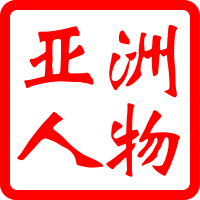以创新为核心,以责任为指引,百果园正在开创一条变革之路,重新定义水果行业全球领导者的标准。
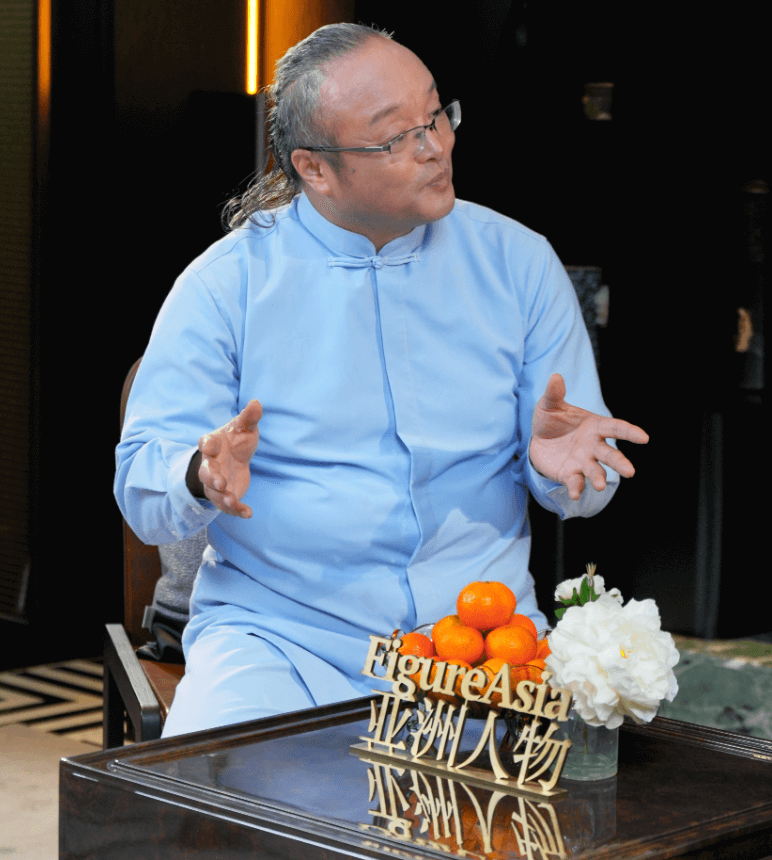
作为中国水果连锁行业的开创者,余惠勇不仅改写了水果零售的商业规则,更通过数字化创新和资本化运作,将百果园从传统水果企业升级为一个现代化的商业标杆。自2001年成立以来,百果园成功实现了从单一门店到全国性品牌的规模化扩张,服务超过亿消费者。依托强大的全产业链体系和数据驱动能力,百果园构建了行业领先的供应链平台,将“好吃的水果”这一简单理念推向了一个全新的商业高度。
2023年1月,百果园历经四次闯关,最终成功香港主板上市,成为中国水果零售行业首家上市公司。这不仅意味着企业在资本市场得到了认可,更标志着水果行业进入数字化和标准化的新时代。通过自主研发的智能化供应链系统和大数据平台,百果园实现了从产地到终端的高效协同,极大地提高了供应链效率和库存周转率。其全国统一的SKU管理系统能够实时追踪数千种水果的品质数据,从而确保产品的一致性与新鲜度。
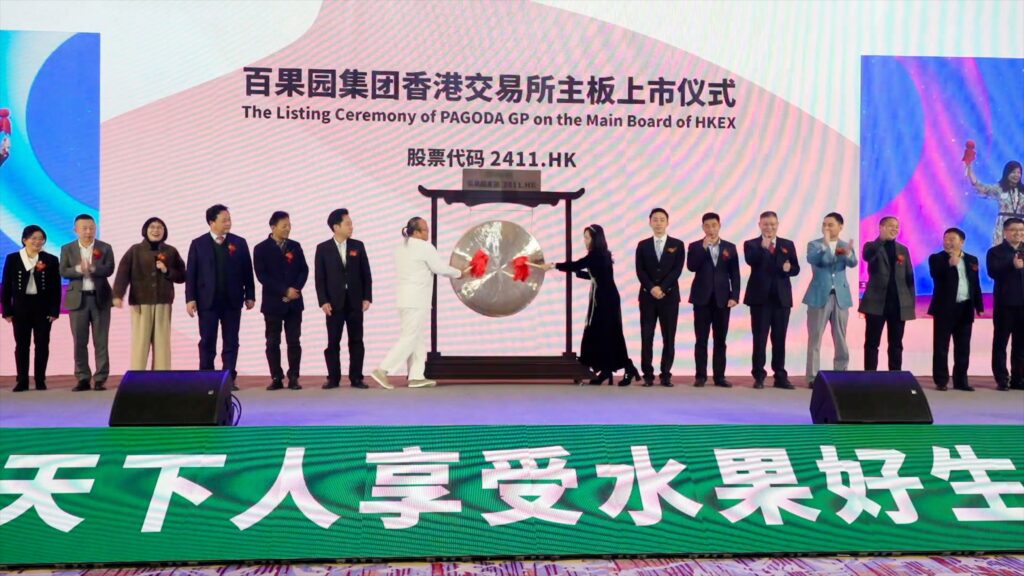
在消费者服务端,百果园充分利用数字技术,搭建了覆盖线上线下的全渠道运营体系。截止2024年10月31日,普通会员8900多万,通过精准的会员管理系统和AI算法,为每位消费者提供个性化推荐与服务,极大提升了客户黏性和复购率。
在接受《亚洲人物》专访时,余惠勇先生深度剖析了百果园从传统产业到资本化、数字化和全球化的转型历程。他强调,百果园不仅是一个商业品牌,更是水果行业的一次系统性革命。在实现商业价值的同时,百果园始终坚守“让天下人享受水果好生活”的使命,通过责任驱动创新,以科技重塑行业未来。
从空白到全球化,百果园如何破局
1997年,当余惠勇刚刚踏入水果行业时,彼时的中国零售市场正迎来连锁模式的崭新浪潮。沃尔玛和麦当劳等国际巨头纷纷入驻中国,以标准化和规模化的经营模式迅速抢占市场份额这一切激发了余惠勇对连锁商业模式的深刻思考。就在一次营销活动中,他脑海中闪现了一个大胆的想法——能否将连锁模式引入水果行业,开创一种全新的经营方式?这一灵感不仅成为百果园的雏形,更开辟了一个全新的行业赛道。

在经过详尽的市场调研后,余惠勇敏锐地发现,尽管水果行业市场规模巨大,消费者需求旺盛,但其供应链和销售方式却长期停留在传统模式中。全球范围内,甚至没有一家真正意义上的水果连锁品牌,市场上存在巨大的结构性空白。“水果是一个既古老又充满生命力的行业,但却始终缺乏连锁化的管理和标准化的品质控制。”余惠勇先生表示,这一空白既是挑战,也是千载难逢的机会。于是,带着“创造一个世界级水果连锁品牌”的梦想,百果园应运而生。
然而,理想与现实之间隔着巨大的鸿沟。创业伊始,余惠勇便遭遇到水果行业的核心难题:如何标准化?水果作为一种自然生长的非标品,受制于品种、产地、气候和季节等诸多变量,其品质难以统一,供应链更是高度复杂。这一问题直接制约了水果行业的连锁化发展,成为全球性的行业壁垒。除此之外,百果园在早期发展过程中还面临激烈的市场竞争和高额的运营成本。2004年,百果园的资金链发生了严重断裂,公司经营一度陷入停滞。回忆起这段经历,余惠勇坦言,这是创业路上最艰难的时刻,但也正是这一危机,让他更加坚定了自己的初心。“我们知道,这条路注定艰难。如果连我们都做不到,世界上可能永远不会有真正的水果连锁品牌。”他说。
在资金断裂的困境中,余惠勇并未选择放弃,而是带领团队反思问题的根源,最终决定从供应链端入手,打造百果园的核心竞争力。他们以“好吃的水果”为标准,从产地直采到分拣配送,对供应链的每一个环节进行优化。通过对产品分级标准的不断探索,百果园首创了一套基于消费者口味偏好的水果分级体系,既提升了产品品质的一致性,也降低了客户的不满意率,为水果行业树立了标准化管理的里程碑。
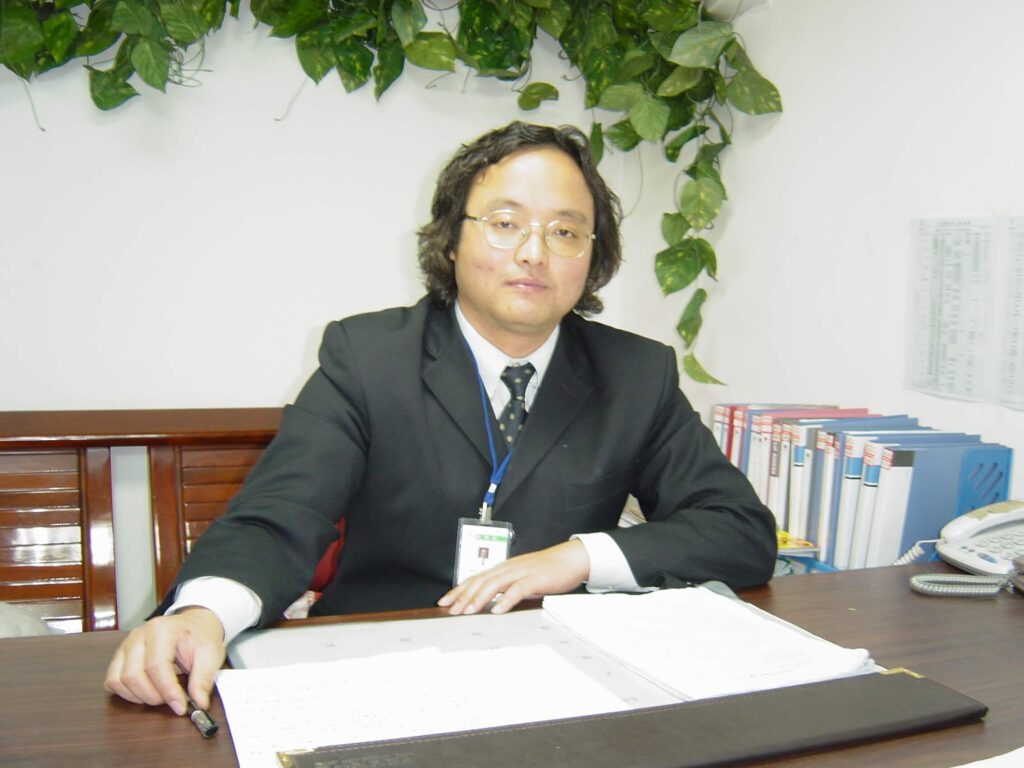
与此同时,百果园积极创新商业模式,推出“加盟+直营”的混合发展策略。通过加盟模式快速扩张门店网络,同时以直营店作为品质管理的标杆,不断提升品牌影响力。这一策略不仅帮助百果园渡过了资金危机,还成功建立了稳定的市场基础。
回望过去,百果园的每一步都在挑战行业的“不可能”。余惠勇用行动证明,一个传统行业也可以通过商业模式创新、技术赋能和强大的执行力,走出一条完全不同的道路。如今,他的目光不仅停留在国内市场,更已经开始描绘百果园的全球化蓝图。这一中国原创品牌,正以颠覆者的姿态,改写水果行业的历史。
夫妻合伙:共同面对挑战的智慧与责任
在百果园的创业历程中,余惠勇不仅用商业智慧引领企业走向成功,还在生活和事业中遇到了他最强大的合伙人——妻子徐艳林。作为百果园背后的女人,徐艳林的付出与坚韧,不仅成为余惠勇能够挺过无数难关的最大支撑,也塑造了百果园的今天。
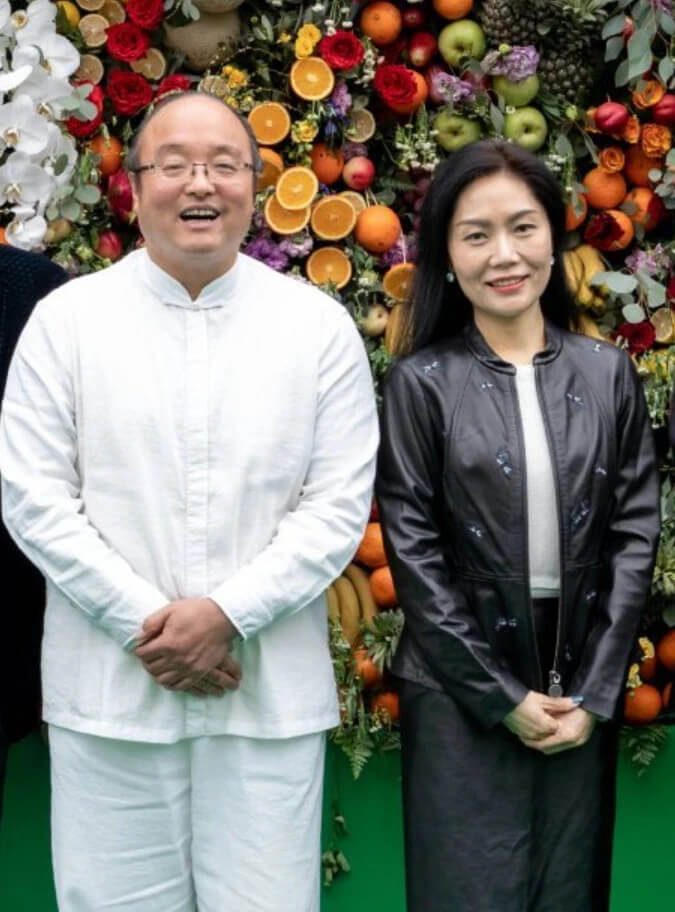
余惠勇坦言,创业初期,他并不希望妻子参与公司的管理。他心里有一个执念:百果园要成为一个国际化的大企业,而不是一个“家族式”企业。“那时候看了很多管理书籍,都说家族企业很难做大,我不想给百果园贴上家族化的标签。”余惠勇先生表示。因此,当徐艳林在丈夫创业之初选择放弃在南昌稳定的教师岗位,并决定追随他到深圳时,余惠勇内心有些复杂。对他而言,这不仅意味着妻子放弃了当时被许多人羡慕的“铁饭碗”,更意味着两人共同踏上一条未知的道路。
“她辞掉工作来到深圳,起初并没有进入公司,而是自己打零工补贴家用。她做过家教、推销员,甚至在美容院工作过,吃了很多苦,但从没抱怨过。”余惠勇先生回忆道。他知道,这一切都是因为徐艳林对他的信任和对家庭的爱。“她并不是来追逐我的事业,而是因为她希望这个家能够更好。”
事实证明,这一决定不仅是百果园发展的转折点,也改写了徐艳林的职业人生。接手后,她大胆进行管理变革,从供应链优化到加盟模式的推进,从财务管控到企业文化的建设,逐步让百果园从亏损走向盈利。她用实际行动,带领公司结束了连续亏损的历史,并为日后的高速扩张奠定了坚实的基础。
在余惠勇和徐艳林的共同努力下,百果园不仅成为中国水果连锁行业的开创者,更成为一个坚守责任、传递爱的企业。他们用行动证明,成功企业的背后,往往站着一位默默付出的“她”。
全球化战略:百果园的未来蓝图
随着国内市场的快速扩张,百果园已然确立了其在中国水果连锁行业的领军地位。然而,董事长余惠勇先生的视野并未止步于此。对他而言,百果园的使命不仅仅是“让天下人享受水果好生活”,更是要让中国原创的水果连锁模式走向世界,成为全球水果零售行业的标杆。
百果园的国际化并不是简单的门店复制,而是以供应链为核心的整体输出模式。多年来,百果园在中国市场深耕全产业链布局,从源头种植到终端销售,建立了一套高度系统化的供应链体系。这不仅让百果园在国内实现了水果品质的标准化和稳定性,也为其进军国际市场提供了强大的支撑。
在全球化的过程中,百果园不仅致力于商业价值的实现,也强调对行业和社会的责任。余惠勇提出:“我们希望通过国际化布局,不仅让百果园走向世界,更推动全球水果行业的健康发展。”他相信,通过百果园的进入,能够促进印尼等市场的水果种植技术提升,推动本地农业现代化进程。
社会责任与可持续发展:良知引领行业前行
作为百果园的创始人,余惠勇始终坚持,企业的成功不能仅仅以盈利为衡量标准,更重要的是在社会责任与可持续发展方面的贡献。他认为,水果行业作为与自然资源紧密相连的产业,其发展必须超越单纯的经济利益,深入到生产、管理与消费的每一个环节,为社会和环境承担起更大的责任。
“许多水果已经失去了自然的味道,”余惠勇直言不讳地指出了当前行业面临的核心问题,“这不仅是消费者的遗憾,更是对环境和土地保护的忽视所导致的后果。”他强调,百果园的使命不仅是为消费者提供好吃的水果,更是要通过科学种植与供应链管理,推动整个水果行业的可持续发展,唤醒企业与消费者对生态环境的重视。一个关注自然与社会责任的企业,才能在日益变化的市场中拥有持久的竞争力。
总结:使命感驱动百果园走向未来
从一个不起眼的小水果店到中国领先的水果连锁品牌,百果园的成长不仅是一段商业传奇,更是中国企业以使命感和创新力改写行业规则的典范。百果园突破了行业的桎梏,用勇气与智慧将连锁模式引入非标准化的水果行业,填补了全球市场的空白。从创业初期的艰难探索到如今的国际化布局,百果园始终以责任感为驱动力,以“让天下人享受水果好生活”的使命为核心,不断推动行业向更高效、更可持续的方向迈进。
百果园的成功不仅是商业上的胜利,更代表了一种全新的商业哲学——以消费者为中心,以社会责任为导向,以文化输出为使命。在这个过程中,百果园不止为行业带来了新的连锁管理模式,还以其深耕供应链、坚持产品质量、拥抱数字化的多元战略,成为中国品牌走向国际的象征之一。它向世界证明,中国企业不仅能够引领国内市场,更能在国际舞台上讲述独特而有影响力的品牌故事。
余惠勇常说,商业成功的背后是一颗充满使命感的心。正是这颗初心,让百果园不仅成为水果行业的先锋者,更成为推动社会和行业可持续发展的践行者和引领者。在这个快速变化的时代,百果园正以其独特的品牌魅力与创新力,不断为中国品牌争光,为全球水果行业注入新的活力。
迈向全球化的道路充满挑战,但正如余惠勇所言,未来的竞争不仅在市场层面,更是企业对责任与智慧的综合考验。百果园正在以行业革新的姿态,为全球消费者带来更高品质的水果与服务,同时为行业的未来树立标杆。它的脚步不仅通向新的市场,也通向更深层次的社会价值和生态意义。
百果园的故事还在书写,未来它将用更深刻的创新、更广阔的视野、更坚定的责任感,继续塑造一个商业与社会共赢的传奇。这个从中国走向世界的水果品牌,正在用实际行动诠释,什么是真正的企业使命与行业担当。
Exclusive Interview: Pagoda Chairman Yu Huiyong—From Entrepreneurial Challenges to Global Strategy, the Mission and Future of Pagoda
As the trailblazer of China’s fruit retail industry, Yu Huiyong has not only reshaped the commercial rules of fruit retailing but also transformed Pagoda from a traditional fruit enterprise into a modern industry benchmark through digital innovation and capitalization. Since its establishment in 2001, Pagoda has achieved a remarkable journey from a single store to a nationwide brand, now serving over 100 million consumers. With its robust full-value-chain system and data-driven capabilities, Pagoda has built an industry-leading supply chain platform, elevating the simple concept of “delicious fruits” to unprecedented commercial heights.
In January 2023, after four attempts, Pagoda successfully debuted on the main board of the Hong Kong Stock Exchange, achieving a market capitalization exceeding RMB 10 billion and becoming the first listed company in China’s fruit retail sector. This milestone not only signifies recognition in the capital market but also heralds a new era of digitalization and standardization in the fruit industry. Through its self-developed intelligent supply chain system and big data platform, Pagoda has realized highly efficient coordination from production to retail, significantly enhancing supply chain efficiency and inventory turnover. Its nationally unified SKU management system can track the quality data of thousands of fruit varieties in real time, ensuring product consistency and freshness.
On the consumer front, Pagoda has fully leveraged digital technology to establish an omnichannel operational system covering both online and offline platforms. As of October 31, 2024, the company boasts over 89 million regular members. Through a precise membership management system and AI algorithms, Pagoda provides personalized recommendations and services to each consumer, greatly improving customer loyalty and repeat purchase rates.
In an exclusive interview with FigureAsia, Chairman Yu Huiyong provided an in-depth analysis of Pagoda’s transformation journey from a traditional industry player to a leader in capitalization, digitalization, and globalization. He emphasized that Pagoda is not merely a commercial brand but represents a systemic revolution in the fruit industry. While delivering business value, Pagoda remains steadfast in its mission of “bringing the joy of quality fruits to everyone.” By driving innovation through responsibility and reshaping the industry’s future with technology, Pagoda is setting a new standard for the global fruit sector.
From Blank Slate to Globalization: How Pagoda Broke Through
In 1997, when Yu Huiyong first entered the fruit industry, China’s retail market was riding the wave of a burgeoning chain business model. Global giants like Walmart and McDonald’s were establishing their footholds in China, rapidly capturing market share with their standardized and scalable operations. This surge inspired Yu Huiyong to deeply contemplate the chain business model. During a marketing event, a bold idea struck him—could the chain model be introduced into the fruit industry to create a completely new way of doing business? This spark of inspiration not only became the prototype for Pagoda but also opened up an entirely new industry track.
After conducting extensive market research, Yu keenly observed a paradox: while the fruit industry was enormous in scale and consumer demand was robust, its supply chain and sales methods remained entrenched in traditional practices. Globally, there was not a single true fruit retail chain brand—an immense structural gap in the market. “Fruits are an ancient yet vibrant industry, but they have always lacked chain management and standardized quality control,” Yu noted. This gap, he realized, was both a challenge and a rare opportunity. With a dream of “creating a world-class fruit chain brand,” Pagoda was born.
However, the gulf between vision and reality was immense. From the outset, Yu faced the core challenge of the fruit industry: how to standardize. Fruits, as naturally grown, non-standard products, are subject to variables such as variety, origin, climate, and season, making consistent quality difficult to achieve and the supply chain highly complex. This issue directly constrained the development of a fruit chain model and became a global industry barrier. Additionally, in its early stages, Pagoda grappled with fierce market competition and high operating costs. In 2004, the company faced a severe financial crisis, with its cash flow nearly collapsing and operations grinding to a halt. Reflecting on this period, Yu admitted it was the most difficult moment of his entrepreneurial journey but also the one that solidified his resolve. “We knew this path was destined to be challenging. If even we couldn’t do it, there might never be a true fruit chain brand in the world,” he said.
In the face of a funding breakdown, Yu refused to give up. Instead, he led his team to examine the root causes of their challenges, ultimately deciding to focus on the supply chain as the foundation of Pagoda’s core competitiveness. Adhering to the principle of “delicious fruits,” they optimized every stage of the supply chain, from direct sourcing at the origin to sorting and distribution. Through continuous exploration, Pagoda pioneered a grading system for fruits based on consumer taste preferences. This system not only improved the consistency of product quality but also reduced customer dissatisfaction, setting a milestone in standardized management for the fruit industry.
Simultaneously, Pagoda innovated its business model by adopting a hybrid development strategy of “franchising + direct operations.” The franchise model facilitated rapid expansion of the store network, while company-operated stores set benchmarks for quality management and enhanced brand influence. This strategy not only helped Pagoda overcome its financial crisis but also established a solid market foundation.
Looking back, every step Pagoda has taken has challenged the industry’s “impossible.” Yu Huiyong has proven that even a traditional industry can carve out a completely different path through business model innovation, technological empowerment, and strong execution. Today, his vision extends far beyond the domestic market as he begins to outline a global blueprint for Pagoda. This original Chinese brand is rewriting the history of the fruit industry as a true disruptor.
Partners in Life and Business: Wisdom and Responsibility in Facing Challenges Together
In Pagoda’s entrepreneurial journey, Yu Huiyong not only led the company to success with his business acumen but also found his most steadfast partner in both life and business—his wife, Xu Yanlin. As the woman behind Pagoda, Xu’s resilience and dedication became Yu’s greatest source of strength through countless challenges, shaping the company into what it is today.
Yu candidly admits that in the early stages of his business, he was reluctant to involve his wife in the company’s management. He held a firm belief: Pagoda needed to become an international enterprise, not a “family-run” business. “At that time, I had read many management books, and they all said family businesses rarely scale up. I didn’t want Pagoda to carry the label of a family enterprise,” Yu explained. Therefore, when Xu Yanlin decided to leave her stable teaching job in Nanchang and follow him to Shenzhen, Yu’s feelings were mixed. To him, this meant not only that his wife had given up her highly coveted “iron rice bowl,” but also that the two of them were stepping together into an uncertain future.
“She quit her job and came to Shenzhen, but at first, she didn’t join the company. Instead, she took odd jobs to support the household. She worked as a tutor, a salesperson, and even at a beauty salon. She endured many hardships but never complained,” Yu recalled. He understood that all of this stemmed from Xu’s trust in him and her love for their family. “She wasn’t chasing after my career; she just wanted to make our family better,” he said.
In time, this decision proved to be a turning point not only for Pagoda’s development but also for Xu Yanlin’s career. When she eventually joined the company, she boldly implemented management reforms, driving improvements in supply chain optimization, advancing the franchise model, strengthening financial controls, and building the corporate culture. Her efforts gradually steered Pagoda from losses to profitability. Through her leadership, the company ended its streak of financial losses, laying a solid foundation for its future rapid expansion.
Thanks to the joint efforts of Yu Huiyong and Xu Yanlin, Pagoda has not only become a pioneer in China’s fruit retail chain industry but also an enterprise that upholds responsibility and conveys love. They have demonstrated through their actions that behind every successful business often stands a “she” who quietly gives her all.
Global Strategy: Pagoda’s Vision for the Future
With its rapid expansion in the domestic market, Pagoda has firmly established itself as the leader in China’s fruit retail chain industry. However, Chairman Yu Huiyong’s vision extends far beyond China’s borders. For him, Pagoda’s mission is not only to “bring the joy of quality fruits to everyone” but also to take China’s original fruit retail model to the world, setting a global benchmark in the fruit retail industry.
Pagoda’s approach to globalization is not merely about replicating its store model but about exporting its supply chain-centric operational model. Over the years, Pagoda has deeply invested in building a comprehensive full-value-chain system within the Chinese market, spanning from cultivation at the source to sales at the retail end. This highly systematic supply chain infrastructure has not only enabled Pagoda to achieve standardized and consistent fruit quality domestically but also serves as a robust foundation for its international expansion.
In its globalization journey, Pagoda is committed not only to realizing commercial value but also to emphasizing its responsibilities to the industry and society. As Yu Huiyong stated, “Through our international expansion, we aim not just to bring Pagoda to the world but also to drive healthy growth within the global fruit industry.” He believes that Pagoda’s entry into markets such as Indonesia can enhance local fruit cultivation technologies and promote the modernization of agriculture in these regions.
By leveraging its expertise and innovations, Pagoda aspires to play a transformative role in reshaping the global fruit retail landscape while contributing to sustainable and equitable development in the agricultural sector worldwide.
Social Responsibility and Sustainable Development: Conscience Guiding Industry Progress
As the founder of Pagoda, Yu Huiyong has always believed that a company’s success cannot be measured solely by profitability. More importantly, it must be evaluated by its contributions to social responsibility and sustainable development. He emphasizes that the fruit industry, closely tied to natural resources, must move beyond purely economic interests and embed responsibility for society and the environment into every stage of production, management, and consumption.
“Many fruits have lost their natural taste,” Yu candidly points out, identifying a core issue facing the industry today. “This is not just a disappointment for consumers but a consequence of neglecting environmental and land preservation.” He underscores that Pagoda’s mission extends beyond providing delicious fruits to consumers—it is about advancing sustainable development across the entire fruit industry through scientific cultivation and supply chain management. By doing so, Pagoda seeks to awaken a shared consciousness among businesses and consumers about the importance of ecological preservation.
Yu believes that only companies that prioritize nature and social responsibility will maintain lasting competitiveness in an ever-changing market. For Pagoda, sustainability is not just a strategy but a guiding principle for its long-term success and impact.
Conclusion: Mission-Driven Growth Propels Pagoda Into the Future
From a humble fruit store to China’s leading fruit retail chain, Pagoda’s journey is not merely a business success story but a testament to how Chinese enterprises can rewrite industry norms with a strong sense of mission and innovative drive. By courageously introducing the chain model into the highly non-standardized fruit industry, Pagoda has broken through industry barriers and filled a significant gap in the global market. From the early struggles of entrepreneurship to today’s international expansion, Pagoda has consistently been propelled by a sense of responsibility, with its mission—”bringing the joy of quality fruits to everyone”—at its core, driving the industry toward greater efficiency and sustainability.
Pagoda’s success is not just a commercial victory; it represents a new business philosophy—one centered on the consumer, guided by social responsibility, and committed to cultural export. Along the way, Pagoda has introduced a new model of chain management to the industry and become a symbol of Chinese brands entering the global stage through its multi-faceted strategy of supply chain integration, unwavering commitment to product quality, and embrace of digital innovation. Pagoda has demonstrated to the world that Chinese enterprises are not only capable of leading their domestic markets but also of telling compelling and influential brand stories on the international stage.
Yu Huiyong often says that behind business success lies a heart filled with purpose. This core belief has enabled Pagoda to not only pioneer in the fruit industry but also become a practitioner and leader in advancing social and industry sustainability. In this era of rapid change, Pagoda is continually showcasing its unique brand charm and innovative power, earning recognition for Chinese brands while injecting new vitality into the global fruit industry.
The road to globalization is fraught with challenges, but as Yu Huiyong points out, future competition extends beyond markets to a comprehensive test of corporate responsibility and wisdom. Pagoda, as an agent of industry transformation, is bringing higher-quality fruits and services to consumers worldwide while setting a benchmark for the future of the industry. Its progress is not just about entering new markets but also about achieving deeper social value and ecological significance.
Pagoda’s story is still being written. In the future, it will continue to shape a legacy of mutual success for business and society with deeper innovation, a broader vision, and a stronger sense of responsibility. This fruit brand, which has grown from China to the world, is proving through its actions what true corporate mission and industry leadership look like.


